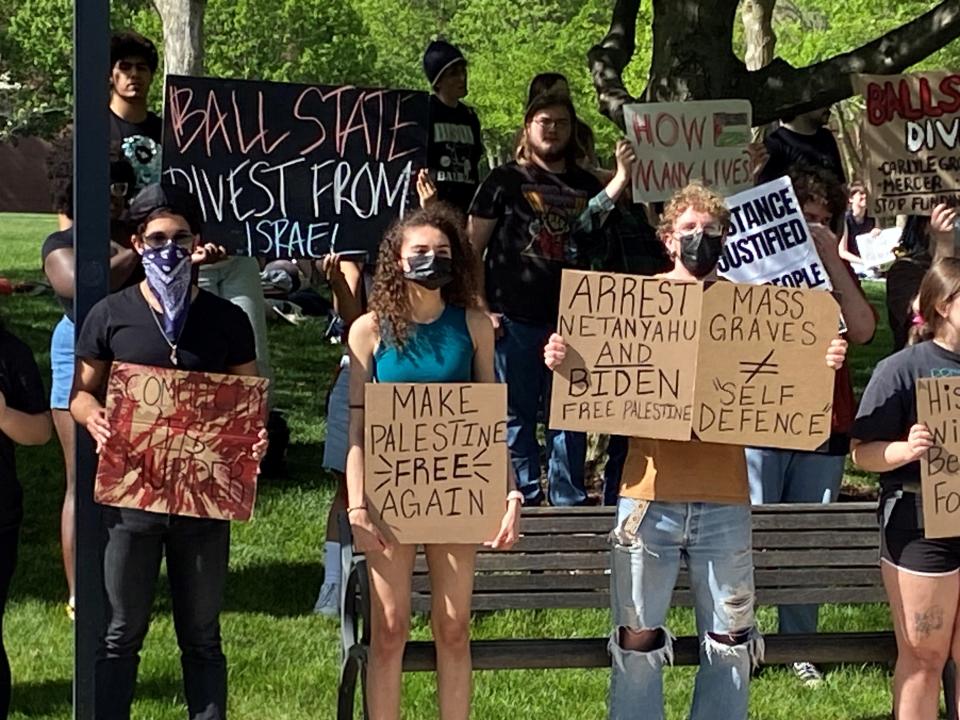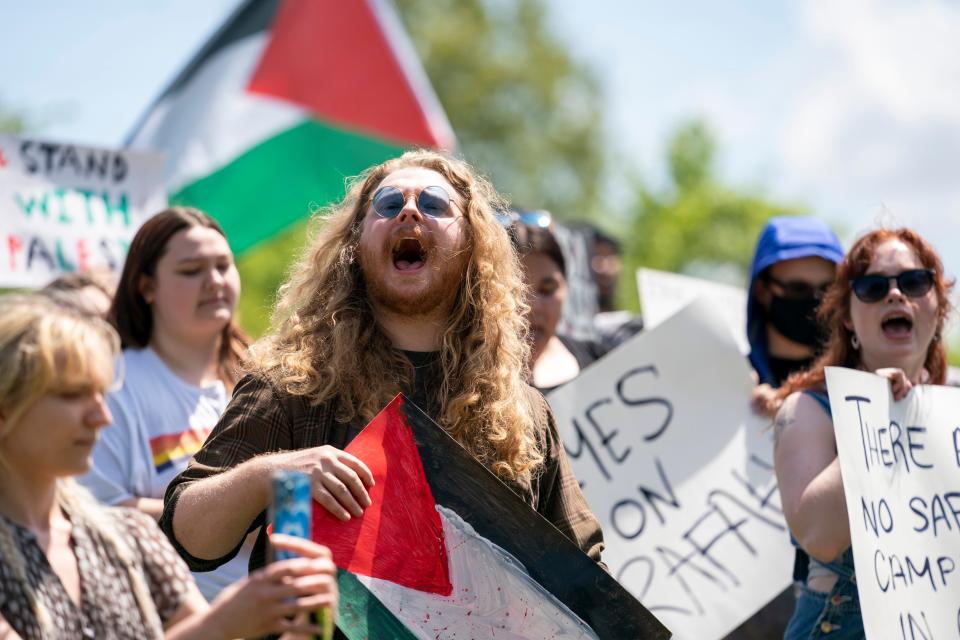Hicks: Student protests nurture antisemitic campus climate
The anti-Israel protests on campuses revealed some of the good, bad and ugly of our universities. Behind them lies hints of Critical Theory, which has captured so many campuses, robbing faculty and students of reason and judgment.
The good news is that protests involved fewer than one in every thousand college students. That means, for every protesting student, hundreds of others were studying for final exams, completing term papers or preparing end-of-course presentations.
The depiction of many protesters as over-privileged and under-informed may be fair, but that is not what I see on campus. Most students arrive with a little intellectual humility and a desire to learn and thrive. Harassing fellow students or barricading the campus are not why they came to college.
The bad was also apparent. Many universities were unprepared, if not confused, regarding how to handle protests. Any president who has not rehearsed a plan to ensure free speech while also protecting property should be looking for a different job. Many failed at that simple task and should go. The harder challenge came with antisemitic threats, which risk creating environments that violate federal civil rights law and campus policies.
Still, after decades of colleges carefully curating students, staff and faculty for a very narrow set of ideologies, many schools seemed shocked to discover there is more than one point of view. This has left some of them helpless and hapless in their response.

There was also more than a little hypocrisy on display. Many faculty members criticized last-minute policy changes or were angered by the police presence, or the techniques they used to disperse students. Those complaints are fair. Still, try to imagine the level of faculty outrage if campus officials summoned armed police to disperse a crowd of students chanting “they will not replace us” or some other noxious white supremacist mantra. There would be none.
To be fair, the protestors and counter-protestors came in many forms. Those outside my office were neither disruptive nor plainly antisemitic. The Middle East has many deep issues that would benefit from honest discussion, and there are there are fair critiques of all sides. There is also more than sufficient suffering to make us care and sympathize with victims.
However, in many places, a deep ugliness descended on American campuses that we must confront. The overall climate of these protests was antisemitic and, frankly, pro-terrorist. I cannot write about this without disclosing my own experience in Middle East wars and in peacekeeping missions designed to prevent another Arab-Israeli conflict.
As a young officer, I was in the midst of some of the most horrific violence the region has seen, including vast refugee columns, devastated cities and murdered civilians. My experiences yield both context and nightmares.
From Chabahar west to Casablanca, from the Mediterranean through the southern Sahara, the neighborhood is a wreck. In that region of 26 nations, there is one functioning democracy — Israel. The rest range from failed states, such as Sudan, to medieval monarchies, such as Saudi Arabia, to full-scale civil wars, such as Syria or Yemen. Ethnic cleansing is common across the region. Indeed, there’s only one nation where religious minorities are increasing — Israel.
Many Middle Eastern nations are full of courageous citizens and struggling governments that wish to craft democracy from the ruins of despotism, imperialism and terror movements. Since the Arab Spring, pro-democracy volunteers continue to fight and die in desperate civil wars in Niger, Libya, Sudan, Yemen, Iraq and especially Syria. They fight radical terrorists, armed groups of thugs and Cold War despots.

A reasonable person might suppose American students would vigorously support that one liberal, multicultural democracy in the region. Or, perhaps, there would be student rallies to support those pro-democracy movements. After all, no human being in the world basks more fully in the blessings of liberty and democracy than a progressive college student.
One might suppose that students would devote themselves to protesting the region’s despots, who operate military dictatorships or 12th-century monarchies. These would surely be targets of an informed, progressive movement.
Most especially, we should expect student protestors to rally forcefully against the radical terrorists. After all, these movements don’t wish women to suffer the inconvenience of education, voting or choosing their husband. The LBGT+ community, which is so active on campus, is largely silent in radical terrorist circles, because they have been murdered.
None of this has happened. The protests on American campuses targeted the sole liberal, multicultural democracy in the Middle East. There is something else at work, an ancient and noxious hatred that has no place on campus. It is antisemitism. We must accept that’s what it is and stand against it.
The claims of Israeli genocide are preposterous. If you believe Hamas’ fabricated numbers, fewer than 1 percent of Palestinians have died in this war. The Syrian Civil War has killed over 15 times the number, without any campus protests.
The protestors would have you believe that Israel has both a powerful and criminal military but lacks the competence to conduct a proper ethnic cleansing. The claims of genocide and ethnic cleansing are just a modern antisemitic trope, without facts or merit.
Many protestors waved the flags of Hamas and Hezbollah, two groups that won popular elections in Gaza and the West Bank. Both explicitly call for the elimination of Israel. It is time to state clearly that waving a Hamas or Hezbollah flag is functionally identical to waving a Nazi flag. We should treat them all with scorn.
The pro-Hamas, anti-Israel protests are funded, directed and promoted by groups with a deep hatred of our liberal democratic values. I doubt most students know this, but faculty and staff participants are well aware.
Hatred of Israel is taught on campuses under the umbrella of Critical Theory. In this view, Israel is depicted as an oppressor and Jews who support Israel are depicted as the epitome of privileged Zionists. This view justifies Hamas and the Oct. 7 murders that precipitated this war.
It is impossible to understand the current explosion of antisemitic protests without appealing to Critical Theory and its anti-liberal focus on race, religion and oppressor status. It is well past time university presidents end Critical Theory-based programming and policies on campus. If not, legislators should do so to prevent these antisemitic protests from becoming more ugly.
Michael J. Hicks is the director of the Center for Business and Economic Research and the George and Frances Ball distinguished professor of economics in the Miller College of Business at Ball State University.
This article originally appeared on Indianapolis Star: Why progressive college students should support Israel

